A Fascination With Matcha
I have been a "tea person" since my high school days, which led me to start Tea Minus One in early 2022 with the goal of selling the highest quality tea on the planet. On this quest, I read books, tasted teas from different countries, and signed up for Japanese tea ceremony classes at my local Morikami Museum and Japanese Gardens in Delray Beach, FL.
It was during my Japanese tea ceremony classes that I realized matcha was perfect for Tea Minus One. Matcha, a Japanese green tea milled into a fine powder, is ceremonially brewed with water and served alongside a sweet. During classes, I learned the Japanese etiquette of receiving tea like royalty, serving each other while bowing in synchronicity and wearing our fine silk kimonos. I began to feel myself drawn toward matcha. The meditative silence of the tea ceremony moved me. I wondered, "Is this significant silence that I love referred to as Zen"? Matcha and tea ceremony were sacred in Japanese culture - and I began to feel the same way.
The Daily Grind
Committed to matcha, I decided that I wanted to make the freshest matcha in the US! So I started hand milling Japanese tencha leaves into matcha powder on a granite 'ishi-usu' stone mill that I imported from Japan. Tencha are delicate flakes of Japanese green tea intended for grinding into matcha. They are lightly steamed, then dried, and the stems are removed in preparation. As my orders increased, I developed shoulder pain, prompting my husband to help automate the milling process. We were so proud! At that time, no other American tea businesses had electric matcha stone mills.

Despite the freshness of my milled matcha, I received feedback from both amateurs and tea ceremonialists that my matcha was "too strong," even when comparing the same farm's cultivar but milled in Japan. Nor was it fine enough to whisk into a frothy texture suitable for tea ceremonies.
I switched to importing matcha that was super finely milled in Japan. Nonetheless, I intend to revisit electric milling to produce super fresh and fine matcha after acquiring larger stone mills.
(Note: If you're reading this, you can still directly purchase hand-milled matcha from me even though it's not in the main product lineup. Just email hello@teaminusone.com to inquire!)
The Best of the Best

Our Tea Minus One line of matcha is sourced from small family tea farms in the city of Uji, Japan, in Kyoto Prefecture. I have personally visited Uji to learn how the tea is grown, blended, and packed into matcha. Uji not only produces excellent tea but is also the historic heart of tea in Japan. The first tea trees in Japan were planted in Uji near Kyoto's prominent Zen Buddhist temples in 805 AD. By the 12th century, Zen rituals began to incorporate tea ceremonies in which tea was served to nobility and Zen priests.
We are proud to also source Imperial Ceremonial Grade matcha from outside of Uji when we can find such matcha that meets our highest quality standards for the tea ceremony.
We offer blends and single-cultivar matcha. A tea blend combines leaves from multiple tea cultivars or regions to create a unique flavor profile, while a single cultivar uses leaves from one specific tea variety, highlighting its distinct characteristics. Our blends are selected for their delicious flavors, while our cultivars are chosen for their rarity. The blends are perfect for refined Usucha and Koicha tea ceremonies to entertain guests. Our single-cultivar matchas include ultra-rare types such as the light & sweet Samidori cultivar, the umami-rich Okumidori and Gokou cultivars, and the sunny & sweet Yabukita cultivar. Pick out some matcha today on our Shop page, and give it a try! We hope you enjoy tasting our matcha selection.
Thanks for checking us out!

Veronica Clayton, Founder, Tea Minus One
